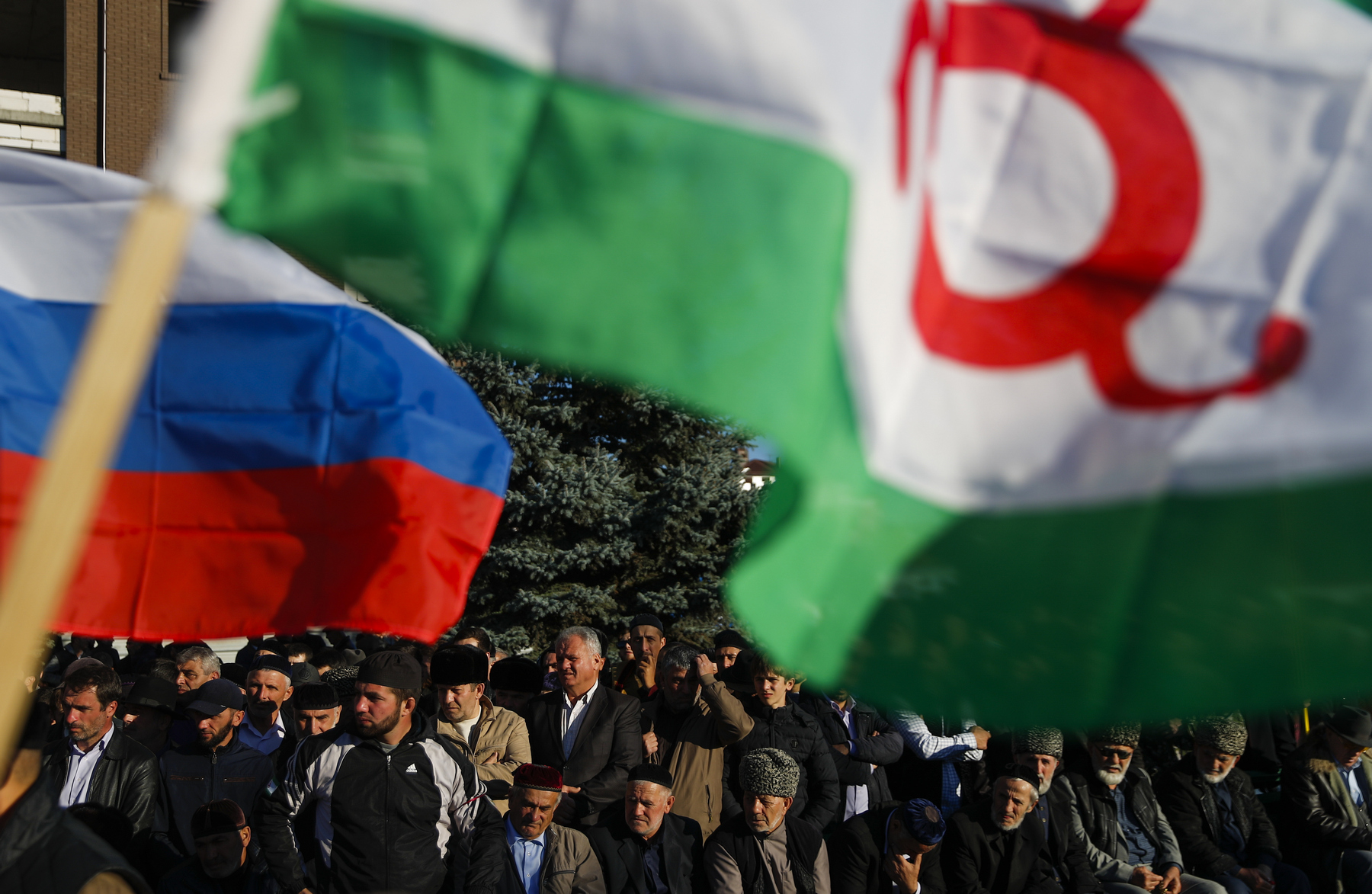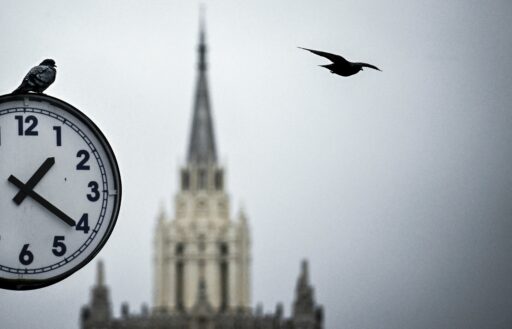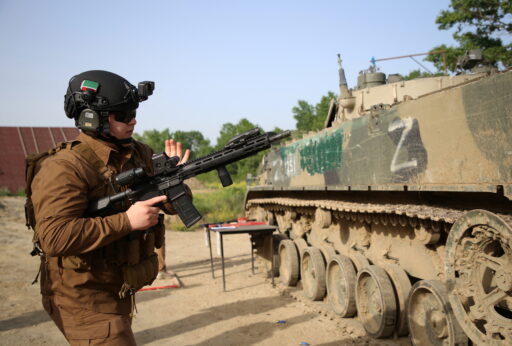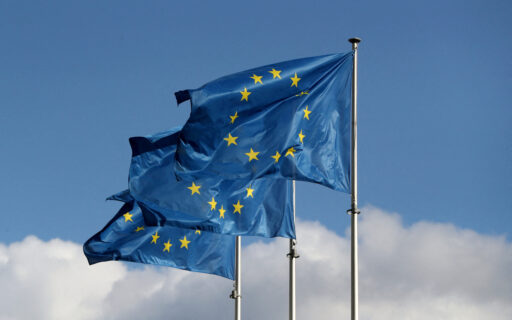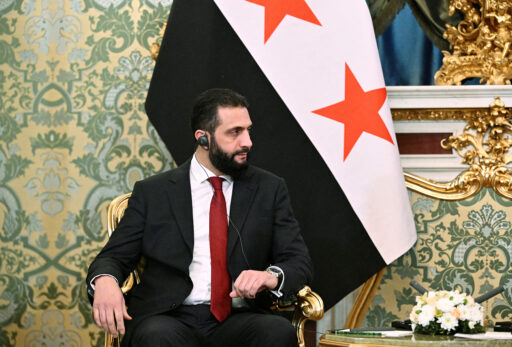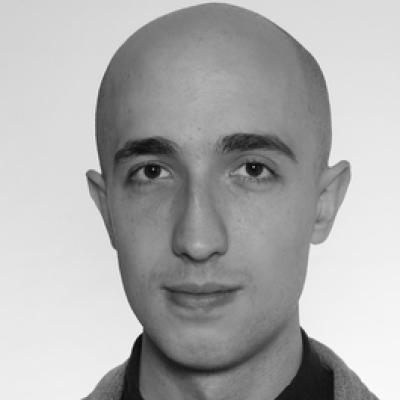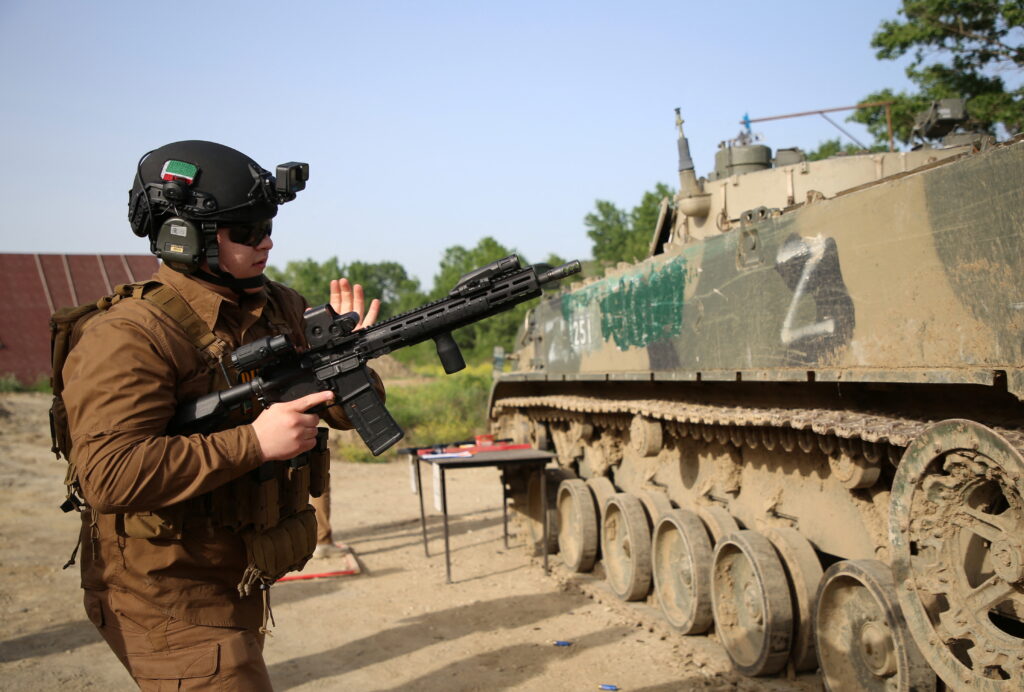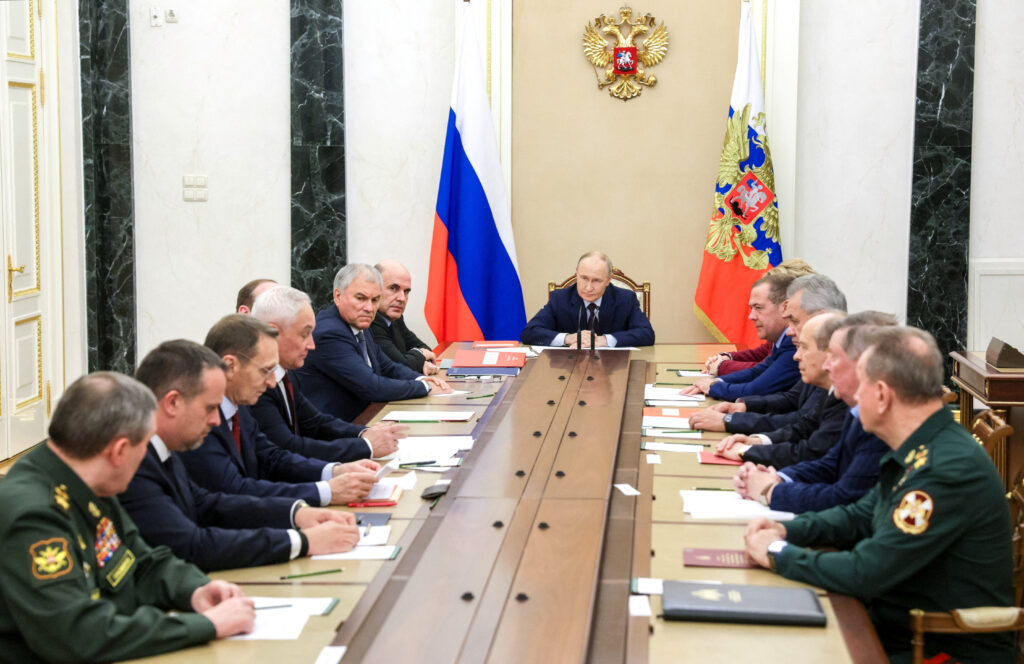Since the start of the Putin era, there has been a process to harmonise legal and political structures across the Russian Federation. The North Caucasus has been no exception, albeit it has also been the region where progress on this matter has been the slowest. A combination of factors – cultural barriers, the complexity of local politics, enduring colonial legacies – has rendered this part of the Russian Federation into what many refer to as Russia’s ‘internal abroad’.
The key factor here may be the informal norms and institutions that shape power in the region. The best known example is the despotic rule of Chechnya’s Ramzan Kadyrov, Russia’s ‘state-within-a-state’. Yet, it is its smaller western neighbour, Ingushetia, that – together with Dagestan – today has become the focus of instability and insurgency. A more unruly region, the politics of this 500,000-strong republic are poorly understood.
As with Chechnya, informal practices and the power sustaining them shape the politics of the small Vainakh republic. Indeed, loyalty to clans, brotherhoods and other religious organisations tends to be stronger than the loyalty to official political organisations. That pushes the state – especially from federal authorities in Moscow – into a need for flexibility when imposing its rule over these unofficial sources of power. In this web of power relations, one of the key players in Ingushetia is the little known Sufi brotherhood of the followers of the sheikh Batal-Khadzhi Belkharoev (1824-1914). Their size and influence render this group into an unavoidable feature in Ingushetian politics, one that is set to impede the Kremlin’s federal agenda in the long-term.
The Batalkhadzhintsy
This secretive brotherhood (vird in Russian, stemming from the Arabic ‘warad’) – whose members are frequently referred to as the Batalkhadzhintsy or Belkharoyevtsy, also called the Batlaky – is based in Surkhakhi, a town just thirteen kilometres away from Magas, Ingushetia’s capital. The brotherhood belongs to the Qadiriyya Sunni Sufi school of spiritual practice. It has roots in the tradition of Ingush Sufi scholarship inaugurated by the Ingush cleric Kunta-Khadzhi (1800-1867). Estimates about their membership go between five to fifteen thousand. The brotherhood itself claims up to thirty thousand, or around five to eight per cent of the entire population of the republic.
In Ingushetia, the brotherhood is known as a state-within-a-state as it is secretiveand large enough to be mostly self-contained. Members are forbidden from marrying outsiders. They are mandated to give ten per cent of their income to the brotherhood’s coffers. Also, the brotherhood has reportedly participated in criminal activities, including carrying out vendettas and gun smuggling in the 1990s. Because of the closed nature of the brotherhood and their visible positions of influence, many myths pervade.
Beyond myths, the history of the brotherhood is known. The brotherhood follows the teachings of Batal-Khadzhi Belkharoyev, an influential North Caucasus Sufi cleric. His influence was large in XIXth century Ingushetia. Like elsewhere in the region, these religious organisations would be a focus of resistance against Tsarist and Soviet power. Today’s opaqueness of the brotherhood draws from past experience as a persecuted group during the Soviet era. Many of the descendants of Belkharoyev became influential figures in Ingush society, even to this day. Yakub Belkharoyev, the current head of the brotherhood, is a senator at the Ingush parliament. Other relatives of Belkharoyev occupy ministerial and other top posts in the republican government. Some have also become important local business figures, including in banking. Throughout the post-Soviet period, the brotherhood would clash with the secular authorities over matters of religion, especially over the influence of the brotherhood over the republic.
The large size and cohesion of the brotherhood is illustrative of Sufism in the North East Caucasus. The region – except for Dagestan – adopted Islam gradually from the eigtheenth century on; during the nineteenth century Caucasus War in particular. Sufi brotherhoods – which at the time had a major role in the promotion of Islam in Central Asia – played a key role in spreading Islam in the North Caucasus. They are thus considered the source of the local ‘traditional’ Islam, as opposed to more recent arrivals, such as Salafism, a movement in Sunni Islam that dates from the early twentieth century. Salafism in particular is frequently maligned in the North East Caucasus and equated with extremism, even though peaceful Salafi communities exist in the region.
Continued conflict with the authorities
The end of Soviet rule did not change the fraught relationship between the brotherhood and the secular state. During the 1990s, the brotherhood was reportedly a prominent illegal weapons dealer. A reporter from Kommersant’ speculated at the time that their (armed) influence would suffice to take over the then-feeble republic.
From then on, accord prevailed between the Batalkhadzhintsy and the republican authorities. The latter even created, in 2007, a state medal in honour of Batal-Khadzhi. It was in the late Putin era when the brotherhood developed strained relations with the former head of the Ingush Republic, Yunus-Bek Yevkurov (in power 2008-2019).
Driving this conflict was how the Ingush government under Yevkurov saw the Batalkhdzhintsy as a ‘fifth column’ for Kadyrov to exert influence over the region. Indeed, the proximity between the leadership of the brotherhood and Chechnya’s leadership is well known. A crucial point of agreement is that both the brotherhood and Kadyrov have shown agreement in oppossing dialogue with local moderate Salafi groups. Ibrahim Belkhoroyev, the previous head of the brotherhood and Ingush senator, had good relations with Kadyrov.
The brotherhood, however, does not always align with Kadyrov. A crucial example was the participation of some of the Batalkhadzhintsy in the protests against the 2018 land transfer to Chechnya. The protests that shook Magas in October 2018 were directed against an agreement signed between Yevkurov and Kadyrov to demarcate the Ingush-Chechen border, in the process transfering about five per cent of Ingush land to Chechnya. The agreement – conceived and signed without any public scrutiny – was seen in Ingushetia as a takeover and a continuation of the loss of Ingush lands that began 1992 clashes with North Ossetia over the Prigorodnyi district. Notably, Ibrahim Belkhoroyev voted against the agreement.
Another crucial reason was the conflict between Yevkurov and the republican muftiate – the religious authorities – over the role of peaceful Salafism in Ingushetia’s religious life. The Batalkhadzhintsy were among the ‘traditional’ Sufi brotherhoods who sided with the mufti of Ingushetia against Yevkurov’s proposal to open a dialogue with local Salafi communities, seen as followers of ‘foreign’ (presumably from Saudi Arabia) islamic ‘innovation’. This issue would ensure a persistent rift between the state and the muftiate throughout Yevkurov’s period in power.
These conflicts, however, fall short of the confrontation between local authorities and the Batalkhadzhintsy over the 2019 assasination of Ibrahim Eldzharkiyev, head of Ingushetia’s anti-terrorism centre. Ibrahim and his brother Akhmed were assassinated in November 2019 in Moscow, in what was quickly attributed to be a hit by the Batalkhadzhintsy. Eldzharkiyev’s assassination was one of the first successful attacks against high-ranking siloviki in years.
The precise motive of the assassination remains unknown. However, a version speculates that Eldzharkiyev was targeted by the Batalkhadzhintsy in retaliation for Ibrahim Belkharoyev’s death, attributed by the brotherhood to the government. Under Ibrahim’s leadership, the Batalkhadzhintsy grew in influence to an extent that worried the authorities. So by the end of 2018 several influential members and supporters of the brotherhood were arrested and Ibrahim was assassinated by unknown assailants. Just two weeks after Ibrahim’s death, Eldzharkiyev survived an attempt on his life in what is believed to have been an early move by the Batalkhadzhintsy.
The way the authorities have acted on this case suggest that they are proceeding on the basis of this version. Yakub Belkharoyev – Ibrahim’s successor as head of the Batalkhadzhintsy – was detained in North Ossetia in July 2020 on his alleged diversion of public funds. Yet, his apprehension is reportedly being used to investigate his alleged masterminding of the Eldzharkiyev assassination. The new head of the Ingush government, Kalimatov, has pursued his predecessor’s policy in what concerns this investigation.
A challenge to Moscow’s federal agenda
Nor Ingush authorities nor Moscow have cracked down systematically on the Batalkhadzhintsy brotherhood. The conflict over the Eldzharkiyev assassination may change that. Still, secular authorities have, for the most part, sought to avoid a direct conflict with the group. Indeed, since 1992, every head of the Ingush Republic has opted for a laisser-passer attitude towards the brotherhood, knowing well their influence and numbers.
The persistence of the brotherhood as a political force in Ingushetia demonstrates that the current secular governing institutions cannot supplant the role of Sufi brotherhoods in the North Caucasus. More than the official political institutions, these ‘traditional’ religious institutions play a key role in structuring public and political life in the region.
The brotherhood is, like Kadyrov’s rule in Chechnya, an unavoidable feature of Ingushetia’s politics. And, just like their neighbours to the east, it is one that sits uncomfortably with Moscow’s long-term regional harmonisation agenda.
